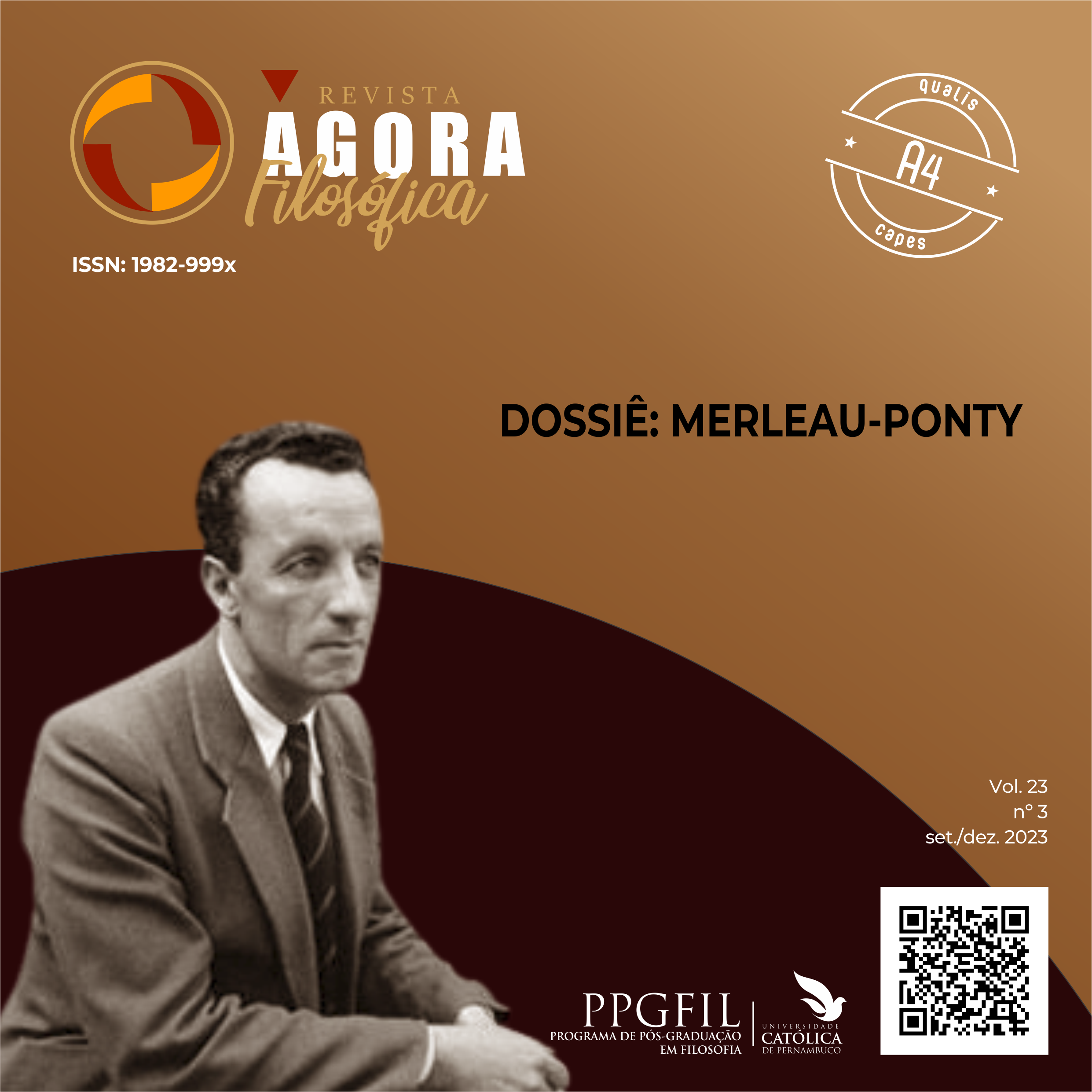Descartes, Husserl and the epoché as an existential foundation
DOI:
https://doi.org/10.25247/P1982-999X.2023.v23n3.p129-147Keywords:
phenomenology, consciousness, subjectivity, cogito, intentionalityAbstract
This article aims to analyze the influence of René Descartes' thought on Edmund Husserl's concept of epoché. We shall deal with the concept of epoché, therefore, highlighting the role of the cogito in its phenomenological implications. Husserl conditions the epoché to the discussion about the constituent character of consciousness, therefore to intuitionism and intentional remittances, opposing the objectivist and physical-naturalist interpretation of consciousness. It affirms, therefore, from Descartes, a first operational naturalness to the naturalness of the modern sciences. By refraining from the affirmative ego through systematic doubt (the cogito), Husserl will promote a renewal of the relationship between consciousness and meaning, followed by a renewal of the notion of consciousness from the defense of an existence correlated to the world. What was made possible thanks to the renewal of subjectivity achieved in the phenomenological-transcendental epoché.
Downloads
References
ADORNO, Theodor. Para a metacrítica da teoria do conhecimento: estudos sobre Husserl e as antinomias fenomenológicas. Tradução: Marcos Antônio Casanova. São Paulo: Unesp, 2015.
ARISTÓTELES. Metafísica. Tradução: Edson Bini, São Paulo: EDIPRO, 2012.
BROCHARD, Victor. Os céticos gregos. Tradução: Jaimir Comte. São Paulo: Odysseus, 2009.
DESCARTES, René. Discurso do método e meditações. Tradução: Roberto Ferreira. São Paulo: Martin Claret, 2008.
HEIDEGGER, Martin. Ser e tempo. Tradução: Márcia de Sá Cavalcante; pósfácio de Emmanuel Carneiro Leão. Petrópolis: Vozes; Bragança Paulista: Editora Universitária São Francisco, 2015.
HUSSERL, Edmund. A crise das ciências europeias e a fenomenologia transcendental: uma introdução à filosofia fenomenológica. Tradução: Diogo Ferrer. Rio de Janeiro: Forense Universitária, 2012.
HUSSERL, Edmund. Ideias para uma fenomenologia pura e para uma filosofia fenomenológica. Tradução: Márcio Suzuki. Aparecida: Ideias & Letras, 2006.
HUSSERL, Edmund. Investigações lógicas: investigações para a fenomenologia e a teoria do conhecimento. Tradução: Pedro M.S. Alves e Carlos Morujão. Rio de Janeiro: Forense Universitária, 2015.
HUSSERL, Edmund. Meditações Cartesianas e Conferências de Paris. Tradução: Pedro M. S. Alves. Rio de Janeiro: Forense, 2013.
LÉVINAS, Emmanuel. Descobrindo a existência com Husserl e Heidegger. Tradução: Fernanda Oliveira. Lisboa: Instituto PIAJET, 1997.
LYOTARD, Jean-François. A Fenomenologia. Tradução: Armindo Rodrigues. Lisboa: Edições 70, 2008.
MOURA, Carlos Alberto Ribeiro de. Cartesianismo e fenomenologia: exame de paternidade. Revista Analytica, v. 3, n. 1, p. 195-218, 1998.
RICOEUR, Paul. Na escola da fenomenologia. Tradução: Ephraim Alves. Petrópolis: Vozes, 2009.
Downloads
Published
Issue
Section
License
Copyright (c) 2023 Caio Lívio Sulpino Dantas

This work is licensed under a Creative Commons Attribution 4.0 International License.
You are free to:
- Share — copy and redistribute the material in any medium or format for any purpose, even commercially.
- Adapt — remix, transform, and build upon the material for any purpose, even commercially.
- The licensor cannot revoke these freedoms as long as you follow the license terms.
Under the following terms:
- Attribution — You must give appropriate credit , provide a link to the license, and indicate if changes were made . You may do so in any reasonable manner, but not in any way that suggests the licensor endorses you or your use.
- No additional restrictions — You may not apply legal terms or technological measures that legally restrict others from doing anything the license permits.
Notices:
You do not have to comply with the license for elements of the material in the public domain or where your use is permitted by an applicable exception or limitation .
No warranties are given. The license may not give you all of the permissions necessary for your intended use. For example, other rights such as publicity, privacy, or moral rights may limit how you use the material.
















